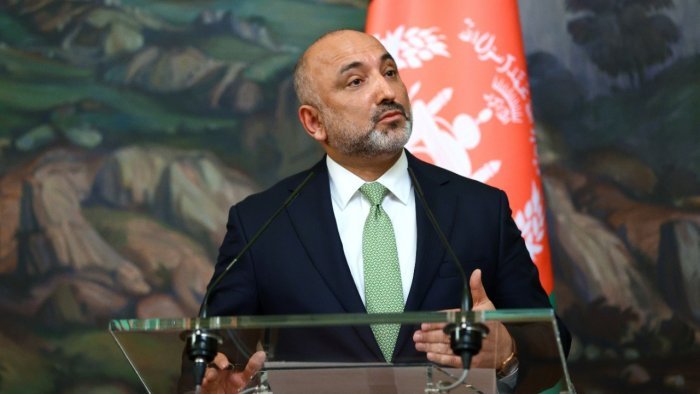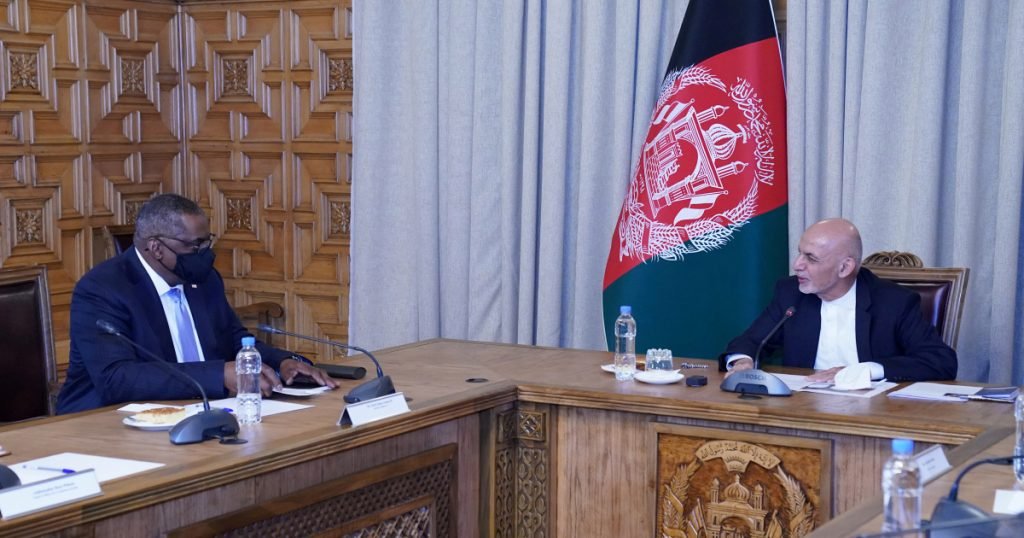Afghanistan Foreign Minister’s visit to India Amid the Rising Uncertainty over the Afghan Peace Process

The Minister of Foreign Affairs of Afghanistan Mohammed Haneef Atmar is on a three-day visit to New Delhi amid growing uncertainty over US troop withdrawal. The Afghan Foreign Minister arrived on 22nd March to discuss the ongoing peace process in war-torn Afghanistan. The major purpose of Mr Atmar’s visit along with the Afghan delegation is to discuss the bilateral relations, strengthen regional and international consensus on the Afghan peace process and discuss enhanced cooperation among India and Afghanistan, according to the Afghan Foreign Ministries press release. The meeting comes amid the renewed international efforts to speed up the Afghan Peace process ahead of 1st May when the US troops are expected to withdraw from Afghanistan as promised by the former Trump administration in a Peace Deal last year. Afghan Foreign Minister’s visit is significant during this phase, as there has been a flurry of diplomatic activity on the Afghan Peace issue and he will be sharing the developments with the Indian authorities.
India’s strong support in favour of Afghan Peace
On the first day of this visit, Afghan Foreign Minister M Haneef Atmar held bilateral talks with External Affairs Minister S. Jaishankar. The talk mostly centred around ways to strengthen regional and international consensus on the Afghan Peace processes and also discussed the expansion of bilateral relations, economic cooperation and regional connectivity between the two countries.
The two counterparts also reviewed the recent Troika Peace Meeting in Moscow and after analysing its final deceleration, they concluded that the meeting laid a positive impact for strengthening and advancing the peace processes. This meeting of the extended Troika on peaceful settlement in Afghanistan on 18th March focused on the progress being made in the intra-Afghan dialogue in Doha, Qatar. The two key outcomes of the meeting were, that all parties were against the restoration of the Islamic emirate, handled by the Taliban. It also asked the Taliban to violence significantly by avoiding the path of the ‘Spring offensive’. Pakistan exercises maximum control on the Taliban, still, Pakistan being one of the parties in this meeting, opposed the restoration of the Islamic emirate, indirectly Taliban. Thus, the Taliban needs to reconsider this seriously.
EAM S. Jaishankar has also strongly supported Afghan Peace processes and the achievements of the Afghan people in the last two decades. India has been supporting the Afghan national peace and reconciliation process which is Afghan-led, Afghan-owned and Afghan controlled. He also expressed India’s readiness to participate in the regional conferences on peace and development in Afghanistan and also showed interest in attending the Istanbul Process in Tajikistan and Peace Talks in Turkey. Apart from meeting EAM S Jaishankar, Afghan FM also met National Security Advisor Ajit Doval and former Indian ambassadors to Kabul, during his stay.
India’s consistent support for Afghan welfare
India has recently delivered 5,00,000 doses of COVID-19 vaccines and 75,000 tons of wheat to Afghanistan. India has also signed a Memorandum of Understanding on the construction of the Shatoot Dam and India will continue to support the reconstruction and developmental projects for the welfare and prosperity of the Afghan population.
Afghan FM M Haneef Atmar also recognized India’s enhanced role in strengthening regional and international consensus for the success of Peace talks. He also thanked India for investing approximately $3 billion in economic and development assistance to Afghanistan over the last two decades.
The two sides also had a discussion surrounding regional connectivity projects, such as the development of railways from Central Asia to South Asia via Afghanistan and also the extension of the Chabahar port. During the meeting, the counterparts also decided to form specialised working groups in various fields to strengthen economic and developmental cooperation and to follow up on the planned projects at the technical levels.
The crucial visit
The visit can be seen as a major step taken by the Afghan government following its desire to keep New Delhi updated about the exchanges with the Taliban. The visit also comes at a time when the US has planned to give India a larger role in the Afghan Peace talks, as inferred from the letter by US Secretary of State Antony Blinken to Afghanistan President Ashraf Ghani earlier this month which called for a meeting of foreign ministers from the United States, Russia, India, Pakistan, Iran and China under the aegis of the UN, thereby making New Delhi a direct stakeholder in the Taliban peace deal. Amidst the rising uncertainty over US troops withdrawal from the war-torn country, U.S. Secretary of Defence Lloyd James Austin went to Afghanistan after he visited India, this indicates that the U.S. may station troops beyond 1st May.

In the letter Mr Blinken has also asked Afghanistan to form an interim government, this will bring the Taliban representatives equally at par with the elected government, which according to the Biden administration will lead to lasting peace in the war-torn country. But this proposal has been vehemently opposed by Afghanistan’s President Ashraf Ghani in a statement opposing this proposal “be assured that as long as I am alive, they will not see the formation of an interim government. I am not like those willows that bend with the wind.” President Ghani also informed that FM M Haneef Atmar during his present visit in India, where he will be meeting all the senior Indian officials, will be conveying this same message and will seek to gather New Delhi’s support in opposing Washington’s proposal.
Apart from gathering support against the US proposal to form an interim government, the visit will also help Afghanistan in ascertaining India’s stand on the Biden administration’s approach to the Taliban peace deal and the ongoing intra-Afghan talk between the Ghani government and the Taliban which started in Doha last year.


















